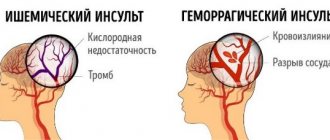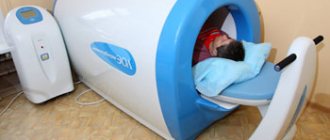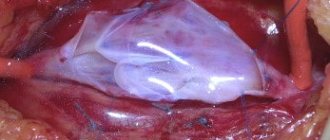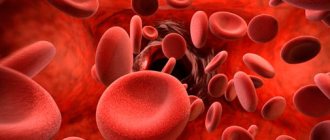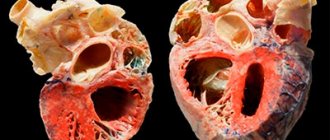Plasmapheresis is a method of efferent therapy with which doctors influence the internal environment of the human body. It quickly and effectively cleanses the blood of exogenous and endogenous toxic substances. This procedure is successfully used in the Yusupov Hospital to treat a number of diseases of various systems and organs. Thanks to the latest equipment and the extensive experience of the highly qualified medical staff of the intensive care unit, plasmapheresis is carried out at the highest level. The risk of complications is minimal.
Doctors at the Yusupov Hospital determine the number of plasmapheresis sessions by objectively assessing the patient’s condition and establishing the goal of treatment. Often, noticeable improvements are observed after the first procedure. But sometimes it is necessary to conduct at least five sessions, the schedule of which is developed by a specialist. Most often, the plasmapheresis procedure is performed as part of complex therapy.
Principle of plasmapheresis
Plasmapheresis is a gravitational method of extracorporeal detoxification (blood purification outside the human body). During centrifugation, centrifugal forces act on the blood. The shaped elements are arranged in layers around the axis of rotation. The densest cells (erythrocytes) move to the periphery. Closer to the center are the formed elements of blood, the density of which is less (leukocytes and platelets).
Pure plasma remains in the center of the separation chamber. In the case of therapeutic plasmapheresis, it is removed entirely, with all the physiological and toxic components it contains, and replaced with fresh frozen donor plasma or blood substitutes. Thanks to cooperation with large blood banks in Moscow, the Yusupov Hospital performs plasmapheresis for all patients in need of blood purification. The cost of donor plasma and blood substitutes is included in the price of the procedure.
Plasmapheresis is regarded as a universal efferent method that allows you to influence toxins of any nature, electrochemical charge, molecular weight. In recent years, plasma membrane filters have become widespread. They allow you to separate the liquid part of the blood from the formed elements. Plasmapheresis allows you to influence the structure of cell membranes of platelets and red blood cells. The total detoxification effect of plasmapheresis and its effect on blood fluidity are higher compared to other efferent methods.
Plasmapheresis is used as an independent method of extracorporeal blood purification or as part of detoxification measures, if the plasma obtained by plasmapheresis is exposed to sorbents, filtration, precipitation (interaction with an agent, as a result of which a precipitate forms). When carrying out plasma exchange, a certain volume of the liquid part of the blood is removed. Then at least 70% of the removed volume is replaced with fresh frozen donor plasma or a 5% albumin solution. This version of plasmapheresis is used to combat external intoxication syndrome. Plasmapheresis is effective for endotoxicosis, which develops due to the production of pathological products of a high-molecular nature, and polytoxicosis, which develops due to an excess of toxic substrates of various molecular weights.
Currently, doctors are increasingly using selective plasmapheresis methods. They are based on cryoheparin precipitation. Selective plasmapheresis techniques can increase the efficiency of the procedure and reduce the amount of required plasma replacement media. The cryoapheresis method is based on the property of the plasma protein fibronectin to form polymers in the presence of heparin in the cold and precipitate. Using this technique, from 30% to 50% of immunoglobulins M, A and G, fibrinogen, the C3 component of complement, and peroxide-modified lipoproteins are removed from the patient’s body, while maintaining up to 85-90%.
Make an appointment
Droppers to cleanse the body of alcohol breakdown products
To detoxify the body of an alcohol-dependent person, the drugs Reamberin and Mafusol are used. In addition to having a balanced electrolyte composition, they contain components of a system of biochemical reactions through which the human body receives its main energy as a result of the oxidation of food. This process is called the tricarboxylic acid cycle.
This is an ever-repeating biochemical process in which acetyl residues are oxidized to carbon dioxide. This is the most important moment of respiration of all cells that use oxygen, the intersection point of most metabolic pathways in the body. By participating in such reactions, the components of the drug help with poisoning, oxygen starvation, and naturally with acidosis. That is, the drugs further activate metabolism, as a result of which all alcohol burns out in the tricarboxylic acid cycle.
Types of procedure
There are two types of plasmapheresis:
- Therapeutic, the purpose of which is to remove various toxic substances from the body along with “contaminated” plasma;
- Donor - plasma is taken from a healthy person - a donor, and is subsequently infused into a patient in need.
In addition, depending on the method used to obtain plasma, plasmapheresis can be:
- Hardware;
- Centrifuge;
- Membrane;
- Sedimentation;
- Cascading.
Plasmapheresis is essentially similar to many other methods of cleansing the blood of toxic elements.
After blood is collected from the venous bed, it is sent through a special tube to the machine. Then, depending on the type of plasmapheresis, various procedure options are possible:
- During centrifugal plasmapheresis, plasma is separated from formed elements in a special device rotating at high speed. Then the formed elements are returned back into the bloodstream, and the plasma is removed from the device and disposed of;
- With membrane plasmapheresis, plasma is separated using a special filtration system. Thanks to the use of disposable filters, which are removed after use, the likelihood of contracting viral infections (HIV infection, hepatitis C) is reduced to zero;
- The principle of cascade plasmapheresis is not similar to other techniques described above. During this process, the resulting plasma is additionally filtered. This method allows you to remove high-molecular compounds from the body. When a high degree of purification is achieved, the plasma is returned back.
Price of a dropper for removing toxins
The cost of a drip to remove toxins depends on the volume of the drug administered, the duration of the procedure, the presence of additional manipulations (for example, injections), the time of the procedure, and the distance from the metro.
| Volume of the drug | Time | Price |
| 250 ml. | 30-50 min. | 1200 rub. |
| 400-450 ml. | 50-110 min. | 1400-1700 rub. |
| 250 ml. + injection into the same hole | by agreement | 1500 rub. |
If the apartment is more than 10 minutes on foot, then an additional 100 rubles will be paid. travel by land. The price is valid from 09:00 to 21:00. When instilling a patient from 06:00-09:00 and 21:00-00:00, an additional 25% surcharge is added.
Return to the “Droppers at home” section.
Indications for use
The procedure is indicated for a variety of diseases and pathological processes that lead to the formation and accumulation of pathological elements in the blood. Plasmapheresis at the Yusupov Hospital is carried out if patients have the following diseases and conditions:
- Sepsis – to reduce the number of bacteria in the blood;
- Long-term compression syndrome - to remove formed toxic substances;
- HIV infections;
- Autoimmune pathologies – to remove aggressive autoantibodies;
- Atherosclerosis;
- Liver diseases accompanied by elevated levels of liver enzymes;
- Poisoning (toxic substances, medications);
- Severe alcohol intoxication, drug addiction.
Plasmapheresis is also prescribed to people suffering from:
- Oncological diseases;
- Damages to the heart muscle;
- Hypercholesterolemia (high levels of “bad” cholesterol in the blood);
- Complications after a heart attack;
- Rheumatism;
- Diseases of the organs of vision;
- Kidney pathologies;
- Myocarditis of viral etiology;
- Pulmonary vascular diseases;
- Bronchial asthma;
- Alveolitis;
- Pneumonia;
- Crohn's disease;
- Nonspecific ulcerative colitis;
- Diabetes mellitus
- Diseases of the reproductive system;
- If there is a Rh conflict during pregnancy;
- Acne;
- Dermatological problems (allergic rashes, psoriasis, urticaria, etc.);
- Neurological diseases.
The blood purification procedure is indicated for people who have problems with the skin (allergic rashes, psoriasis), joints, eyesight, and urinary system. Plasmapheresis sessions stabilize the condition of patients with multiple sclerosis, thromboembolism, alcoholism, and drug addiction. They are performed in the presence of Rh conflict during pregnancy.
The American Academy of Neurology has established the following indications for plasmapheresis in neurology:
- Severe form of Guillain-Barre syndrome;
- Chronic inflammatory demyelinating polyneuropathy;
- Polyneuropathy with monoclonal gammopathy with a possible role of IGG/LGA;
- Crisis or preparation for surgery of patients suffering from myasthenia gravis;
- Multiple sclerosis.
Plasmapheresis is successfully used to treat about two hundred diseases. The procedure, combined with drug therapy, can significantly improve the condition of patients and eliminate existing symptoms of diseases. Membrane plasmapheresis at the Yusupov Hospital is successfully used to treat cancer. High results of the procedure are ensured by the latest equipment and extensive experience of doctors.
Expert opinion
Alexey Vasiliev
Head of the Department of Neurology, Candidate of Medical Sciences, neurologist of the highest category
“High-volume plasmapheresis is considered the gold standard treatment for a wide range of neurological diseases. It is performed for patients with severe, aggressive multiple sclerosis, acute disseminated encephalomyelitis, myasthenia gravis, chronic inflammatory demyelinating polyneuropathy and many other diseases. This treatment method has a pronounced therapeutic effect, is safe and accessible to patients.
At the Department of Neurology of the Yusupov Hospital, plasmapheresis is performed with a volume of 2-2.5 liters per session. Such intensive use of plasmapheresis allows you to maximally cleanse the body of toxins and antibodies that destroy the myelin sheath of nerve fibers. After several sessions, patients note a decrease in the symptoms of the underlying disease and a general improvement in well-being.”
Detoxification drugs
Popular drugs for detoxifying the body, which are administered intravenously:
- Hemodez N;
- Reamberin;
- Rheosorbilact;
- Neocompensan;
- Reopoliglyukin;
- Gelatinol.
Action of drugs:
- detoxification (removal of toxins, cleansing of the body);
- antioxidant (reducing the degree of oxidation of lipids and proteins);
- improvement of rheological properties of blood (dilution) and microcirculation;
- antihypoxic effect (saturation of blood with oxygen and improvement of metabolic processes).
Contraindications to plasmapheresis
Like any other procedure, plasmapheresis has some limitations: absolute and relative contraindications. The need for its use is determined by the attending physician after a comprehensive examination of the patient. Plasmapheresis is absolutely contraindicated in case of serious damage to vital organs (these include the brain, heart, lungs, kidneys and liver), as well as in case of massive bleeding. Due to the high risk of complications, including death, plasmapheresis is not performed if the patient has the following absolute contraindications:
- Cardiovascular diseases (especially the right parts of the heart muscle);
- Cerebrovascular accidents;
- Arterial hypertension (excessively high blood pressure);
- Anemia;
- High blood clotting;
- Blood too thick;
- Acute and chronic liver dysfunction;
- Drug addiction and neuropsychiatric disorders.
Blood purification is prescribed with caution in the following conditions:
- Tendency to bleed;
- Ulcerative lesions of the digestive tract;
- Arrhythmias, low blood pressure;
- Insufficient level of protein in the blood;
- Infectious processes in the acute stage;
- Menstruation (women).
Positive effects
Plasmapheresis allows you to cleanse the blood of harmful substances:
- Metabolic products - uric acid, urea, creatinine;
- Inflammatory mediators;
- Hormones;
- Antigens;
- Antibodies;
- High molecular weight lipids;
- Toxins.
The procedure allows you to achieve significant physiological changes. By creating artificial hypovolemia, the body's protective properties are activated. Swelling decreases, the concentration of harmful substances in the blood decreases. In order for the results of the procedure to be as high as possible, patients at the Yusupov Hospital are prescribed a therapeutic course of plasmapheresis, which usually consists of three to four sessions.
How it works?
Cleansing drip is a universal procedure that has a complex effect on the body:
- relieves symptoms of intoxication by breaking down and removing toxins from the blood;
- normalizes the content of electrolytes in the blood;
- eliminates oxygen starvation;
- supports the heart muscle;
- activates blood supply to the brain;
- restores normal blood pressure levels;
- stabilizes the psycho-emotional state.
The use of therapy helps reduce the risk of developing heart failure, heart attack or stroke that occurs against the background of severe intoxication. The effect is achieved by increasing the elasticity of blood vessels and eliminating spasms of smooth muscles. Intravenous drug therapy weakens the aggressive effects of toxic substances and poisons, restores the balance of vitamins and minerals, strengthens defenses, and supports the liver.
Free consultation with a narcologist
I agree to the processing of personal data
What diseases is it used to treat?
Plasmapheresis is an indispensable detoxification method for poisoning with alcohol, external and internal toxins, and poisons. The procedure is used to prevent stroke, heart attack and other cardiovascular diseases. A course of plasmapheresis helps to gradually cleanse blood vessels of cholesterol deposits, making them strong and elastic. Normal blood circulation in the body is restored, and the risk of cardiovascular diseases is reduced. Patients experience heart pain, blood pressure normalizes, memory and sleep quality improve.
By ensuring good blood supply to the body, plasmapheresis improves the functioning of the heart, blood vessels, and kidneys. The risk of developing diabetes complications is reduced. After the procedures, trophic ulcers heal quickly. Plasmapheresis can overcome insulin resistance.
The positive effect of plasmapheresis is observed in autoimmune diseases (bronchial asthma, allergies, rheumatoid arthritis, multiple sclerosis). These diseases arise as a result of disturbances in the functioning of the human immune system, when it begins to perceive its own tissues as foreign and fight them, producing special autoantibodies. During plasmapheresis sessions, they are removed from the body, like other harmful substances. A course of plasmapheresis helps to quickly cope with exacerbation of the pathological process, prolong the period of remission and prevent possible complications of the disease. Plasmapheresis also allows you to significantly reduce the dose, and sometimes even cancel it, of hormonal drugs.
Plasmapheresis allows you to quickly stabilize the patient’s condition and improve liver function in hepatitis B and C. The success of drug therapy for hepatitis directly depends on the amount of viral components in the body. The virus changes and deforms the cells of the body, disorients the immune system, which begins to produce antibodies to its own cells. Systemic diseases (diabetes mellitus, autoimmune thyroiditis) are added to hepatitis. In this case, hepatitis therapy becomes dangerous, because interferon drugs increase the body’s autoimmune aggression. The blood is purified from viral components, autoantibodies, circulating immune complexes and other harmful substances using plasmapheresis. Extracorporeal detoxification sessions allow you to provide the necessary treatment and prevent the development of autoimmune processes.
Chronic inflammatory processes of the reproductive organs occur in men and women. Their cause is viruses, fungi, bacteria. Diseases can occur either with clinical manifestations or hidden. Often chronic infections lead to infertility, sexual disorders, and cause disturbances in the development of the fetus in the womb. Antibacterial therapy is often not effective enough. Plasmapheresis cleanses the blood at a deep cellular level, allows you to influence the source of infection and cope with chronic inflammation. After plasmapheresis, the body's resistance to infection increases and reproductive function is restored.
Chronic fatigue syndrome is manifested by increased fatigue, which does not go away even after proper rest. Patients are depressed, they suffer from headaches, and their performance decreases. Pain in muscles and joints, irritability, disturbances in sleep quality appear, lymph nodes become enlarged, and body temperature rises for no reason. In this state, the body is not able to cope with infectious agents. Antiviral drugs, immunomodulators, antidepressants do not solve the problem. The use of plasmapheresis makes it possible to restore the body’s lost resistance to bacteria and viruses and to stop the manifestations of chronic fatigue syndrome.
Make an appointment
Treatment of alcoholic psychosis
To carry out therapy, it is necessary to hospitalize the patient, it is better if he is in
in the intensive care unit of a drug treatment clinic, where the patient is always under the watchful supervision of medical staff. How is delirium delirium formed? If a person suffers from long-term drinking bouts, then his liver function, which is responsible for the inactivation and elimination of harmful substances, is impaired, and this in turn affects the entire central nervous system and leads to disruption of water-electrolyte balance and vitamin metabolism. Due to a hangover, psychosis begins to develop. This is often preceded by an epileptic seizure, inflammatory disease, or injury. If treated incorrectly, it can cause acute damage to the midbrain and hypothalamus (Haye-Wernicke syndrome).
Therapy is carried out using droppers. The patient is administered approximately two liters of glucose solution and saline solution per day, in combination with electrolyte solutions or potassium or magnesium asparaginase. Large doses of vitamins of different groups are used. Do not use hemodez!
Examination before the procedure
To identify indications and contraindications for plasmapheresis and to exclude possible complications of the procedure, patients at the Yusupov Hospital undergo a comprehensive examination on the eve of the procedure:
- Examination by a therapist, which includes measuring blood pressure and assessing other important indicators of the body’s functioning;
- Clinical blood test to diagnose acute or chronic inflammatory process and other diseases;
- Determination of blood glucose levels (allows you to identify diabetes mellitus, and in persons with a confirmed diagnosis - to control blood glucose levels);
- Coagulogram (for the purpose of assessing the parameters of the blood coagulation system, identifying a tendency to increased bleeding or blood clots);
- Blood test for the Wasserman reaction (allows you to detect syphilis);
- Determination of antigens to HIV and hepatitis;
- A biochemical blood test with determination of the level of protein fractions allows us to identify a low protein content in the blood, which is a relative contraindication to plasmapheresis sessions.
In order to evaluate the work of the heart, an electrocardiogram is recorded using modern devices. At his discretion, the doctor may prescribe other examination methods that confirm the need for plasmapheresis or exclude this method of extracorporeal detoxification for a particular patient.
Literature:
- Malin D.I., Medvedev V.M. Clinical narcology in diagrams, tables and figures: textbook. — 4th ed. - M.: University Book, 2013. - 172 p.: ill.
- Pyatnitskaya I.N. General and private narcology: a guide for doctors. - M.: OJSC "Publishing House" Medicine", 2008. - 640 p.
- Entin G.M., Goffman A.G., Muzychenko A.P., Krylov E.N. Alcohol and drug addiction (A practical guide for doctors). - M.: MEDPRACTIKA-M, 2002. - 328 p.
- Eryshev O.F., Rybakova T.G., Shabanov P.D. Alcohol addiction: formation, course, anti-relapse therapy. - St. Petersburg: Publishing house "ELBI-SPb", 2002. - 192 p.
Possible complications
Complications may develop if the medical staff performing the procedure does not properly comply with all instructions. Plasmapheresis may be accompanied by the following complications:
- Formation of blood clots and hemolysis in the device. Thrombosis can be prevented by the use of adequate doses of heparin;
- Allergic reactions to the materials of the plasmapheresis device. The ultra-modern equipment of the Yusupov Hospital eliminates these phenomena;
- Phlebitis - a section of the vein that is punctured for blood sampling can become inflamed;
- Embolism;
- Bleeding – occurs with an overdose of drugs that reduce clotting rates. The likelihood of bleeding is increased in persons suffering from peptic ulcers of the digestive system;
- Sepsis, HIV infection (human immunodeficiency virus). At the Yusupov Hospital, plasmapheresis is performed only with sterile disposable needles and instruments, due to which the likelihood of infection is reduced to zero; the clinic has a license to provide transfusiology.
Nowadays, plasmapheresis is the most effective auxiliary method used to treat most diseases. Contrary to popular belief, this procedure does not have a general strengthening and rejuvenating effect. The majority of patients who have undergone plasmapheresis at the Yusupov Hospital leave positive reviews about this procedure. Their well-being improves, their performance increases, and they feel a surge of strength.
The benefits of plasmapheresis are as follows:
- strengthening the body's defenses;
- reducing the level of “bad” cholesterol in the blood;
- acceleration of metabolic processes;
- improving cell oxygen saturation.
Before undergoing plasmapheresis at the Oncology Clinic of the Yusupov Hospital, patients are prescribed a comprehensive examination to identify diseases for which this procedure is contraindicated. Thanks to the ultra-modern equipment of the clinic, the research results obtained are of maximum accuracy. After plasmapheresis sessions performed at the Yusupov Hospital, complications do not develop.
Advantages of performing the procedure at the Yusupov Hospital
Plasmapheresis at the Yusupov Hospital is carried out by experienced specialists who, during the procedure, monitor the appearance of any changes in the patients’ condition and, if necessary, make adjustments. To perform plasmapheresis, the Yusupov Hospital has the latest equipment that ensures the highest quality of its implementation. Patients are housed in comfortable, cozy, clean rooms, the equipment of which corresponds to the latest technology.
The experienced medical staff of the Yusupov Hospital provides round-the-clock professional care to patients. You can get up-to-date information about the nuances of preparing for the plasmapheresis procedure and its cost, and make an appointment with a specialist online or by calling the Yusupov Hospital. The contact center operates 24 hours a day, seven days a week, seven days a week.
Make an appointment
IS IT POSSIBLE TO DIGGLE YOURSELF?
Self-medication during binge drinking is dangerous for the patient. Only a qualified psychiatrist-narcologist can prescribe a drip for alcohol intoxication. The slightest inaccuracy in determining treatment can lead to worsening of the condition or even death. Incorrect installation of a catheter in a vein is fraught with painful hematomas, thrombosis, and phlebitis.
The drug treatment clinic of Dr. Lazarev in St. Petersburg at the address Lodygina Lane, 7, k.2 will help patients get out of binge drinking anonymously at home and in the hospital. You can sign up for an IV or call a doctor at home by calling: 8.
You can anonymously place an IV for alcohol intoxication at Dr. Lazarev’s clinic. No information needs to be provided. The only information that is needed is about chronic diseases and the duration of the binge. And, of course, the voluntary consent of the patient.
Only a physician is able to assess the severity of an alcoholic’s condition, decide on his hospitalization if necessary, select medications for an intravenous drip, and give further recommendations.



